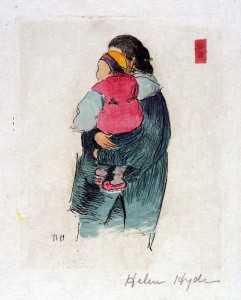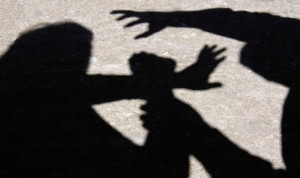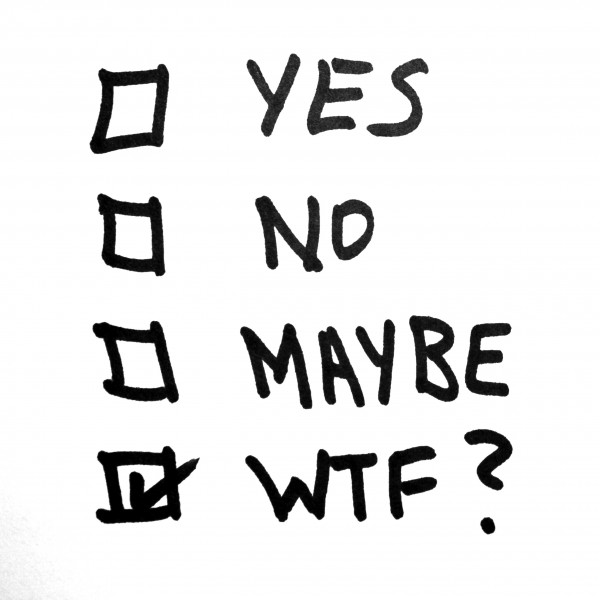I wrote this a while ago, and have been trying to pull together the time and energy to post it. Abortion is a very touchy topic, so let me just say here, I am not trying to tell anyone what to think about this issue. Also, I have never had an abortion myself, so I am not claiming to know what that experience entails.
When I first started seeing links for the Gosnell trial, my first reaction was disgust and anger that this sort of mistreatment was going on for so long without any intervention. The second was surprise that this trial had been in progress for almost a month and I hadn’t heard a peep about it.
Now granted, I don’t watch the news; I have enough stuff to worry about in my life without stressing about the latest murder or kidnapping. I do read the headlines when I am online, and I usually get a general idea of the big news stories. When the Newtown massacre happened I knew within hours. Pretty much every station/network/channel had endless coverage on the election of the newest pope. When Savita was denied her abortion in Ireland, there was coverage on the major news networks and many bloggers and chose to highlight the injustice from both sides. I saw liberal attacks on the “pro-life” crowd after Savita, and I read the “pro-life” responses and defense of their viewpoints. But things seemed pretty quiet on the Gosnell case, until I clicked on that first link and from there read accounts from liberal sites decrying not only this case but the countless other medicinal malpractice cases that have happened throughout the years, and I read the perspective of conservatives, who were basically saying “Ha! We told you abortion is horrifying!”
or kidnapping. I do read the headlines when I am online, and I usually get a general idea of the big news stories. When the Newtown massacre happened I knew within hours. Pretty much every station/network/channel had endless coverage on the election of the newest pope. When Savita was denied her abortion in Ireland, there was coverage on the major news networks and many bloggers and chose to highlight the injustice from both sides. I saw liberal attacks on the “pro-life” crowd after Savita, and I read the “pro-life” responses and defense of their viewpoints. But things seemed pretty quiet on the Gosnell case, until I clicked on that first link and from there read accounts from liberal sites decrying not only this case but the countless other medicinal malpractice cases that have happened throughout the years, and I read the perspective of conservatives, who were basically saying “Ha! We told you abortion is horrifying!”
It reminded me of just how much my understanding of abortion has evolved over time, and I wanted to talk about it. Not my conclusions, because I am not sure I have that many, but my train of thought I guess.
I grew up in an extremely “pro-life” household. I remember hearing that some women did not want their babies, so they killed them. During elections my family always supported the “pro-life” candidate. I remember the little flyers describing “partial-birth” abortion that we passed out one election. I was 10 or 11 and my mom put a bag down on the stairs and told me not to look inside while she ran upstairs to get something. I peeked in anyways and ended up reading the flyer and was in tears when she came back down. She immediately knew I had looked in the bag, and I demanded to know if it was true that people killed babies like that, and she told me yes. I was committed to passing out those flyers that year, I even remember urging my dad to pass one to the lady in the burger king drive through as she handed us our bag of food.
That was my understanding of abortion for a long time. If I heard the term abortion, late term was what came to mind (and I had no knowledge that only 1.5% of abortions are ever performed so late.) I truly believed that some people hate babies so much, that they have come up with ways to kill them before they are technically born. I was anti- abortion, any abortion. I was anti-birth control too, partially because I believed that if someone had already decided they did not want a baby and became pregnant despite the measures they took to prevent pregnancy they would be that much more likely to get an abortion. I actively argued against birth control of all kinds, refused to use it myself and preached at others who did.
As life continued, I began to question the glorification of fertility inherent in my worldview. Did infertility make someone less of a woman? Was a marriage without children not truly a marriage? Was every person truly called to have children? Even if they did not feel capable of caring for them, or had no desire to care for them? Was it really healthy for every couple to have as many children as would naturally occur with no intervention?
I began to see spacing or preventing children as acceptable, even commendable, because every child deserves love and care and attention, and a healthy parent who has enough time and energy and reserves to give to their child. Every child has value, and deserves to be desired and cared for. Given the amount of abused and neglected and abandoned children in the world, I have a hard time seeing Family planning as the problem.
I saw abortion as a separate issue now, instead of linking it with contraceptives. I still thought that abortion should be illegal in pretty much all circumstances, until I actually read the stats for the first time. Turns out that the countries that have legalized abortion have far less of them than countries that don’t. This was shocking to me. I had always seen abortion being legal as pretty much THE cause of abortion, now I started to question whether all the “stats” I had been fed were accurate. Thing is, it is hard to nail down actual truth when it comes to abortion, it’s has been highly politicized and a simple Google search on questions about abortion will get you thousands of hits from very biased and inaccurate sites.
For example, I have seen 2 different statistics regarding Planned Parenthood’s services. One, from Planned Parenthood says that only 3% of the services they provide are abortions. Within a few days I saw a religious group claiming that 97% of what Planned Parenthood does is abortions. The only way these conflicting stats can make sense to me, is the fact that Planned Parenthood would be including every time they pass out contraceptives or provide education on STIs as part of their calculations, while the religious group would be counting every single “abortifacient” contraceptive or plan b distributed, as an abortion.
A pivotal moment for me was when I somehow ended up reading this link. This “pro-life” woman writes about how she denied her disabled daughter access to emergency contraceptive after she was raped. Basically she seemed to care more about the potential of a yet-to-be conceived grandchild, than she did the wellbeing of her daughter. I felt sick to my stomach after reading it. I was still “pro-life” and mostly anti-contraceptive at the time, but the whole scenario of a disabled person being raped and then being forced to let her rapists sperm possibly fertilize an egg because her mother was “pro-life,” just felt wrong to me.
This led me to read up on what hormonal birth control and plan B contraceptives actually do.
First I found out that a woman is not actually pregnant until implantation has occurred, as in your body does not consider itself pregnant, you will not get any pregnancy symptoms or a positive pregnancy test of any kind until sometime after implantation. The function of hormonal birth control is to prevent ovulation and fertilization, not preventing implantation of a fertilized egg, like I had always been told. Even the often attacked Plan B was designed to prevent any possible egg and sperm from meeting. This meant it didn’t cause abortion; it prevented it by preventing the pregnancy in the first place.
This led me to read up even more on the female body and pregnancy. The big question remaining for me was if a fertilized egg was a person or not. So even if there was occasional ovulation breakthrough and the birth control made it impossible for the fertilized egg to implant and begin a pregnancy, was that an abortion? Or not? It didn’t make sense to call it an abortion; it didn’t fit the category of an ended pregnancy. In fact, a woman’s body naturally passes most of the eggs that become fertilized, without the woman herself ever being aware that fertilization occurred. If the life of a person truly started at conception, this would mean that every sexually active woman out there has unknowingly lost many children. The thought that I would someday meet more than 50 children in heaven someday simply because they had never implanted made me laugh. Why would the god I believed in at the time construct our bodies in such a way? And if he had, why would he condemn the people who occasionally passed a fertilized egg because of the medication they were on if he had designed their bodies to do so naturally already? A fertilized egg couldn’t possibly be considered a human if it wasn’t even a pregnancy yet. (For more on these numbers, this article is a more thorough breakdown.)
I couldn’t see contraceptives or “plan b” as abortions anymore.
I still considered myself personally against actual abortions that ended pregnancy, but I was no longer sure abortion should be illegal, since the stats seemed to show an increase in medical hack job abortions and abortion related deaths the harder it was to get a medically safe abortion. Abortion has been around for thousands of years, only recently has it become possible for women to get one without being forced to seek help from underground quacks. I was also stunned to find out that 1 in 3 women have had an abortion. This wasn’t the few and far between baby hating crazy lady, this was a real situation, a real choice that many women found themselves facing for one reason or another.
I’ve started to wonder why this dilemma is perpetually ignored by the “pro-life” crowd in every way except when it comes to trying to make sure every baby ever conceived is born. Why do so many women have abortions? The same crowd that fights to ban all abortion (which as I’ve already pointed out, doesn’t end abortion, but only drives it underground, where people like Gosnell can do whatever they want without regulations) doesn’t fight to help children or women in any other way. In fact, they fight legislatively against things like healthcare, food stamps, childcare, contraceptives, and even maternity leave. They make arguments that women belong in the home with their children, and then turn around and ridicule unemployed lower-class mothers as lazy freeloaders. I have truly started to wonder how these groups and politicians can consider themselves the “pro-life” movement just for trying to ban a particular medical procedure.
I met someone who was told that the medication her Doctor had mistakenly prescribed her while she was pregnant was one that would cause such major birth defects that her baby would not survive, and might not even be in one piece when it was born. She considers herself pro-life and is proud that she did not get the recommended early term abortion, even though it meant months of a very difficult life-threatening pregnancy and a stillborn malformed baby born late in her pregnancy. While I wonder if it would have been more merciful for everyone involved to have had an early abortion, I am glad she had the choice either way.
For a while I considered myself against all late-term abortions, but I met someone who had been heavily addicted to hard drugs when she got pregnant. She was always high, and didn’t even realize she was pregnant until she was past 20 weeks; she ended up being one of those rarer women who get a second trimester abortion. A family member helped to pay for it by giving the amount directly to the doctor, since she herself could not be trusted not to spend the money on drugs. I could not find it in myself to judge her. Presently she has been off of the drugs for several years, but if she had carried that baby to term, what effect would that amount of drug use have had on that baby’s life?
Women have been faced with these choices for centuries. Sometimes it’s an easy choice, relief to end an early pregnancy conceived with an abusive partner who would only use the pregnancy and the child as further means to abuse. Sometimes it is a heartbreaking choice, based on medical circumstances beyond anyone’s control. (Something I was taught had been fabricated by “pro-abortion” crowds, when in fact pregnancy can be a very risky ordeal for some women.) Sometimes the choice is made because it just isn’t a good time for a child to be brought into that family, and sometimes the choice has to be similar to the desperation of the peasant woman in the novel “The Good Earth,” who killed her 4th child immediately after birth, rather than watch it slowly starve to death like the rest of her family.
Regardless, I believe it should still be a choice. Because every situation is different, and to say every sexual encounter that results in pregnancy must have the same outcome, isn’t even medically possible, much less legally enforceable.
Banning medically safe abortion isn’t going to increase the quality of life of the women faced with these choices, or the children their pregnancies could result in, but no one truly seems interested in the women or children involved. Maybe that’s why the Gosnell trial wasn’t plastered all over every news network. No one wants to see the desperation of women without access to legal, safe, supportive options, brought to the point where they will submit themselves to the likes of Gosnell. Those women aren’t important to America. The story is sensational enough to get the usual crowd of people who like to point fingers (despite the fact that the medical malpractice and late-late term “abortions” and infanticide Gosnell was doing wasn’t the reality of legal regulated abortion) and chant “baby-killers!” but not enough to grant actual attention to the struggle of women all over this country to raise the children they have. What does it take to get recognition of the real issues? To get people to listen to the stories, and actually take steps to care for the people involved? In my mind, this is the only way to reduce abortions, but perhaps neither side is interested in doing that.
For more on this important issue, please read these posts as well:
Rachel Held Evans: Why Progressive Christians Should Care About Abortion
Hännah Ettinger: Performance Art Politics: When Good Christians Love Bad Abortion Laws
Libby Anne: How I Lost Faith In The Pro-Life Movement
















